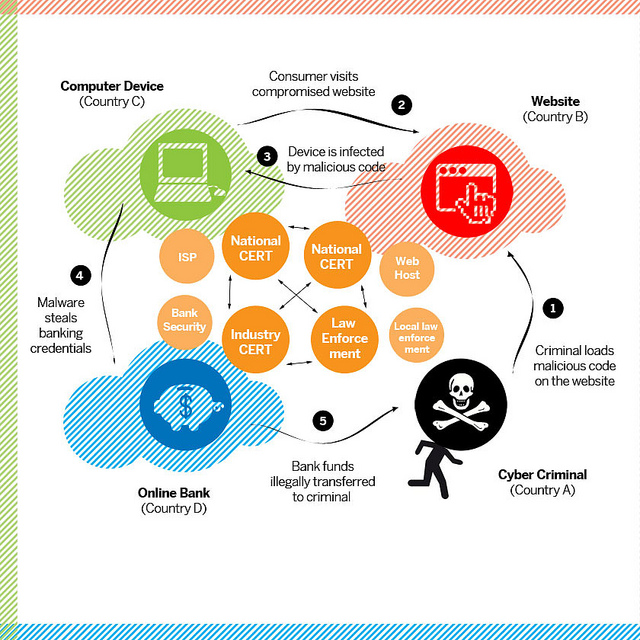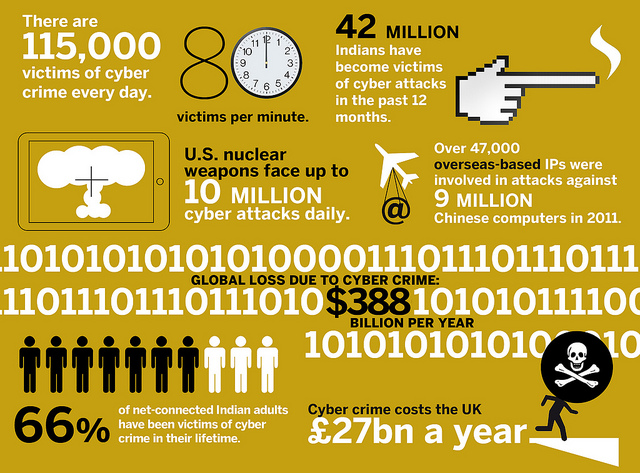Cyber Crime every day

1.5 million people are impacted by cyber crime every day across the globe - close to 18 people per second.
The Global Cooperation in Cyberspace Initiative seeks to reduce conflict, crime and other disruptions in cyberspace and promote stability, innovation and inclusion.

1.5 million people are impacted by cyber crime every day across the globe - close to 18 people per second.

There are 115,000 victims of cyber crime every day in India.
FierceGovernmentIT, a publication of FierceMarkets that “tracks the latest technological developments in the U.S. government,” summarized EWI’s most recent publication on U.S.-China relations in cyberspace.
“The United States and China need to achieve some basic level of trust before they can realistically resolve any of their cyber-related issues, a report from the EastWest Institute and the Internet Society of China says. Trust would depend on clearly stating expectations, matching practices to stated policies, and taking corrective action in response to failures, the report says.”
To read FierceGovernmentIT’s report coverage, please click here
This study submits twelve major recommendations to the private sector, governments and other stakeholders—especially the financial sector—for the purpose of improving the reliability, robustness, resilience and security of the world’s undersea communications cable infrastructure.
In practical terms, these twelve recommendations are offered as challenges to individuals. These will be the ones who will need to make the difference when a difference is called for. The senior leaders and subject matter experts of equipment suppliers, network operators and service providers; the leaders and participants of the industry’s fora; researchers; consultants in small firms; government policy makers and staff employees; IT specialists in financial firms; and many others—all are strongly urged to include this report in their dialogue and to do so speedily, as the improvement opportunities described have important benefits to many throughout the world—and the consequences, many downsides.
It is encouraging that at the time of this report dispatch, a number of private sector interests have indicated their willingness to take the next steps suggested for several recommendations. Each of the recommendations should be considered and acted upon with urgency proportional to the vital role that international communications networks and services will play in the future. The critical priority for implementation is clear. Without reliable international communications networks and services, public welfare is endangered, economic stability is at risk, other critical sectors are exposed, and nation-state security is threatened. The implementation of this report’s recommendations will significantly reduce these and other risks. Each of the twelve recommendations is both challenging and achievable. The intent of the ROGUCCI process from the beginning has been to improve the world’s communications. Successful implementation of each recommendation will significantly improve the reliability and robustness of communications services for the citizens around the world. However, each will require skill, resolve and genuine partnership among government entities, stakeholders and the private sector.
This study strongly urges the private sector, governments and other stakeholders to chart and embark on a new course of policy and practice that forcefully advocates highly available, highly reliable, highly robust, highly resilient and highly secure international communications infrastructure.
Click here to download the complete publication from the IEEE web site
The 3rd Worldwide Cybersecurity Summit in New Delhi attracted broad media interest in India and abroad. On this page you can find an initial overview of reports. The list is still growing and we’ll be posting the latest stories as they appear.


